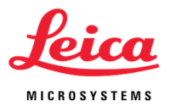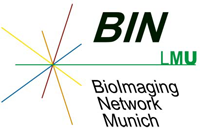Educational Websites
Web sites in German are listed on a different page.
MyScope of the Australian Microscopy & Microanalysis Research Facility features a nice introductory course on confocal microscopy. It includes not only strictly confocal, but also basics you need to get there. If you need to get a grasp on the underlying principles quickly, this is a good starting point. It also includes a test you can take. If you pass, you can print out a certificate with your name :-)
Feel more like watching and listening rather than reading? Try iBiology! This comparatively new site features lectures, each between 10 and 45 minutes long, including (as of summer 2015) well over 100 lectures on microscopy. They are complemented by assessments for self-testing. Topics include confocal, two photon microscopy and many others (just use the search.) Several of the courses are grouped in an "iBiology Microscopy Course" and in an "iBiology Microscopy Short Course". Lecturers include Roger Tsien, Stefan Hell, David Agard, Kurt Thorn, Ernst Stelzer, Jennifer Lippincott-Schwartz, Jan Ellenberg and many other leading experts.
A nice overview over the "History of Microscopy" is given in a series of video lectures on Youtube by Joel Sheffield.
The Optical Microscopy Primer at the Florida State University (FSU) is probably the most comprehensive web resource on light microscopy. It covers pretty much every aspect from all the basics to specialties (Hoffman modulation, Rheinberg illumination, live cell imaging, color bleed-through, CCD, CMOS, you name it). If you wonder how a certain technique works, chances are that you will find an answer here. It has several commercial partners and thus contains in part material that can also be found on commercial introductory sites.
It is therefore not surprising that three of the "Big Four" microscopy companies have educational web sites that have a certain similarity to the Optical Microscopy Primer: Nikon's MicroscopyU, Olympus' Microscopy Resource Center and Zeiss' special section at FSU.edu.
Leica opted for a different approach. Their Science Lab contains detailed articles on specific topics rather than a general overview over everything. Topics include (but are not limited to) Leica specialties such as hybrid detectors, white light laser, gated STED, ... (use the search).







